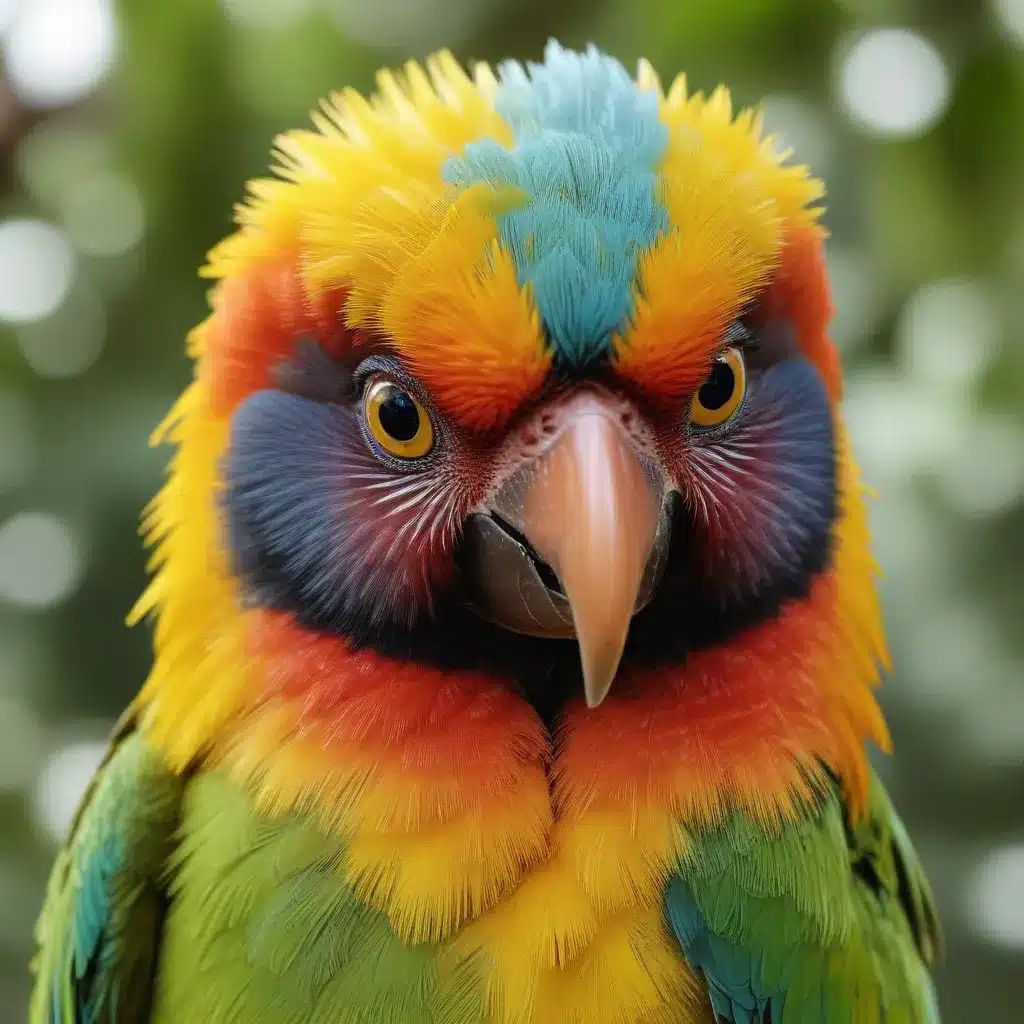
As an experienced avian caretaker and expert in the field, I’ve witnessed firsthand the joys and challenges of responsible exotic bird ownership and breeding. In this comprehensive guide, I’ll share insights to help foster a more sustainable and ethical exotic bird breeding industry – one that prioritizes the well-being of these magnificent creatures while meeting the growing demand for captive-bred companions.
Exotic Bird Species
Tropical Bird Varieties
The world of exotic birds is truly awe-inspiring, with a dazzling array of species hailing from tropical and subtropical regions across the globe. From the vibrant macaws of Central and South America to the striking cockatoos of Australasia, these feathered marvels captivate us with their vivid plumage, engaging personalities, and remarkable intelligence. Responsible breeders must have an in-depth understanding of the unique care requirements and natural histories of each species to ensure their optimal health and welfare.
Raptors and Birds of Prey
Among the most impressive and revered exotic birds are the magnificent raptors – birds of prey such as eagles, hawks, falcons, and owls. These apex predators demand specialized housing, nutrition, and training to thrive in captivity. Ethical breeders must carefully consider the inherent challenges of breeding and raising these formidable hunters, as improper care can lead to devastating consequences for the birds and their human caretakers. Balancing the public’s fascination with these predators while prioritizing their welfare is a delicate dance.
Parrots and Cockatoos
Undoubtedly, parrots and cockatoos are among the most popular and sought-after exotic birds. Their vibrant colors, engaging behaviors, and potential for close human-animal bonds have made them beloved companions worldwide. However, the rapid growth of the exotic pet trade has also led to the exploitation and overbreeding of many parrot species, jeopardizing wild populations. Responsible breeders must champion conservation efforts, promote ethical acquisition practices, and provide comprehensive owner education to ensure the long-term sustainability of these remarkable creatures.
Exotic Bird Care and Management
Housing and Enclosure Design
Crafting suitable living spaces for exotic birds is a crucial aspect of responsible care. Enclosures must be meticulously designed to accommodate each species’ unique needs, providing ample space for natural behaviors, enrichment opportunities, and safety. From the size and layout of the aviary to the selection of appropriate perches, feeders, and hiding spots, every detail must be carefully considered to foster the birds’ physical and psychological well-being.
Nutrition and Diet Requirements
Maintaining the proper nutritional balance for exotic birds is essential for their overall health and longevity. Breeders must have a deep understanding of the dietary needs of each species, sourcing high-quality, species-appropriate foods and supplements. Attention to detail in food preparation, feeding schedules, and monitoring of body condition are all critical components of a comprehensive exotic bird nutrition program.
Veterinary Considerations
Partnering with knowledgeable avian veterinarians is a cornerstone of responsible exotic bird care. Breeders must stay up-to-date on the latest medical advancements, preventive care protocols, and emerging disease threats affecting their avian charges. Proactive health monitoring, prompt intervention for illnesses or injuries, and a commitment to continuous learning are hallmarks of an ethical breeding program.
Ethical Breeding Practices
Genetic Diversity and Conservation
Preserving the genetic diversity of exotic bird populations is a vital responsibility for responsible breeders. By carefully managing breeding programs, selectively pairing unrelated individuals, and introducing new bloodlines, breeders can help maintain the health and resilience of their avian charges. Additionally, supporting in-situ and ex-situ conservation efforts for threatened and endangered species is a crucial way to contribute to the long-term survival of these remarkable creatures.
Responsible Breeding Programs
Ethical exotic bird breeding requires a multifaceted approach that prioritizes the well-being of the birds above all else. This includes meticulously tracking pedigrees, monitoring for genetic issues, and ensuring that breeding pairs are physically and psychologically suited for reproduction. Breeders must also be selective in their placement of hatchlings, prioritizing responsible, well-informed owners who can provide lifelong, high-quality care.
Hatchling and Juvenile Care
Raising healthy, well-adjusted exotic bird chicks requires a deep understanding of their unique developmental needs. Breeders must be skilled in hand-feeding techniques, providing appropriate environmental stimuli, and gradually acclimating young birds to human interaction. Careful monitoring of growth, nutrition, and socialization during the crucial early stages of life lays the foundation for a lifetime of thriving in captivity.
Sustainable Industry Standards
Environmental Impact Mitigation
As the exotic bird breeding industry continues to grow, it is incumbent upon breeders to minimize their environmental footprint. This includes implementing sustainable waste management practices, reducing energy consumption, and sourcing materials responsibly. By embracing eco-friendly practices, breeders can help ensure that their operations do not contribute to the degradation of the very habitats from which these remarkable birds originate.
Ethical Business Practices
Responsible exotic bird breeding extends beyond the care and welfare of the animals themselves. Breeders must also uphold the highest standards of ethical business conduct, from transparent record-keeping and honest marketing to fair treatment of employees and compliance with all relevant regulations. By setting the bar for integrity and transparency, ethical breeders can help build trust and credibility within the industry.
Regulatory Compliance
Navigating the complex web of local, state, and national regulations governing the exotic bird trade is a critical aspect of responsible breeding. Breeders must stay informed of the latest legal requirements, obtain necessary permits and licenses, and ensure that their operations adhere to all applicable laws and guidelines. Proactive engagement with regulatory bodies and a commitment to ethical self-governance can help shape a more sustainable and well-regulated industry.
At Mika Birds Farm, we are dedicated to fostering a thriving, ethical, and sustainable exotic bird breeding industry. By prioritizing the health and welfare of our avian charges, championing conservation efforts, and upholding the highest standards of business conduct, we strive to be a beacon of responsible stewardship within this dynamic field. Through our unwavering commitment to excellence, we hope to inspire others to join us in our mission to safeguard the future of these magnificent creatures.


